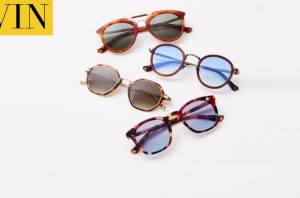Like politics and religion, we usually consider it a little impolite or touchy to talk about how much money someone does or doesn’t have. But what if there wasn’t a way to hide our financial situation? What if people could just look at you and suddenly know you’re down on your luck or, conversely, that you’ve got enough money to play like Elvis Presley and buy everybody Cadillacs?
According to a new study from the University of Toronto, they can. The researchers discovered that financial differences show up right in people’s faces, literally etched into your facial structure and tissues.
Your Life Gets Written Onto You
Graduate student R. Thora Bjornsdottir and psychology professor Nicholas O. Rule, who led the study, took gray-scale pictures of 80 men and 80 women. The people in the photos came from different ethnic backgrounds and didn’t have piercings or tattoos. Half made $60,000 a year or less, while the other half made $100,000 or more.
When Bjornsdottir and Rule had undergraduate students look at the photos, they found that the students could guess the economic status of the individuals in the picture 68 percent of the time. The students were most accurate when the photos included neutral expressions, and being able to see the entire face gave better results than being able to see just the mouth or eyes.
While the students themselves couldn’t pin down why they were able to make the distinction, the co-authors think they were picking up on very subtle physical evidence of previous emotions that can tie back to money. For example, someone who is chronically stressed and anxious because they aren’t financially secure might show deeper lines in their brow, while someone who’s content and financially stable might reveal deeper lines around the mouth from smiling.
Bjornsdottir asserts that, over time, the contraction of muscles associated with various expressions actually can lead to changes in facial structure. Because the brain is so hardwired to pick up on facial cues for social purposes and survival, others easily can pick up on these changes, even when the changes are extremely subtle.
Two Big Implications
Bjornsdottir and Rule’s study has two significant takeaways for professionals.
1. You can’t fake it forever.
Students read “money” clues in faces less accurately when the people in the photos were showing emotion. This implies that you can fake it a little by consciously smiling or using other positive expressions. But you know who keeps up those types of expressions all the time? Nobody. At some point, you’ll let your guard down. And in a business era where authenticity is critical, you might be much better off just being honest and not trying to pretend.
2. Your biases about money can keep poverty cycles going.
When people look rich through their clothes or faces, we tend to associate a ton of positive attributes–for example, intelligence, diligence, and creativity–to them. This holds true even though research shows that, to a large degree, wealth is pure dumb luck. If you subconsciously notice the clues about money written on someone’s face, those biases might creep into your interactions and hiring decisions. Qualified people who deserve your attention and opportunities might never get them unless you make a conscious effort to stay neutral, seek additional opinions, and take more time to truly get to know the person involved. Bjornsdottir notes this potential problem in a University of Toronto article summarizing the study.
“[The study] indicates that something as subtle as the signals in your face about your social class can actually then perpetuate it. Those first impressions can become a sort of self-fulfilling prophecy. It’s going to influence your interactions, and the opportunities you have.”
An important subtlety of the study is that the results hold true even for young adults. Rule points out that the facial etchings are discernable in people who are just 18 to 22 years old. These individuals have to fight not only the bias about their economic status, but also generational preconceptions, such as being lazy or overly distracted by technology. Because they don’t have other elements like years of work experience to offer some balance, the young poor might be at particularly high risk for discrimination. That’s not a good thing, considering the current high competitiveness of the job market.
What We Teach Matters
The results of this study show what can happen when money is a central focus in life and society. But what if it weren’t? Studies show that, at a certain point (somewhere around $95,000), you don’t get any happier with additional wealth. And many of the world’s most revered and notable people have lived a philosophy of minimalism coupled with compassion. Mahatma Gandhi and Mother Teresa are two examples. While we of course have to think about the roof over our head and where we’re going to get a meal, teaching ourselves and our children to see the good around us and to be content with less might help us etch a very different kind of richness on our faces and live far better. We might not have a choice about our money, but we do have a choice in how we see and react to the world.
By INC








